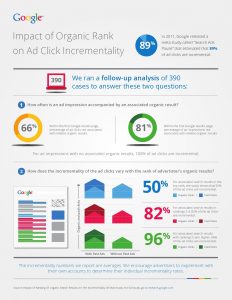In order to increase local visibility, your business must optimize its online presence through various techniques. One such strategy involves making sure that its NAP (name, address and phone number) remains consistent across platforms and websites.
Content creation using keywords is another effective strategy, which could take the form of blogs, product descriptions or even case studies.
Keyword research
Local SEO can be an invaluable way of elevating the visibility of your business online and offline. By ranking for relevant keywords, your business will attract more customers and boost sales. Keyword research is an integral component of local SEO; there are various methods available to you for finding suitable search terms.
First, identify all of the services your business offers by using keywords with two components such as location names – for instance “plumber in London” or “car repair Seattle.”
Once you’ve established a list of keywords, the next step should be adding more specifics. Use tools such as SE Ranking to locate which exact search queries people are making and obtain related data like search volumes; this will help avoid spending too much time and energy on keywords with low volumes that do not bring in new clients. These tools also allow you to keep an eye on competitors’ rankings – they may have keywords you never considered that you can then target in content and ads.
On-page optimization
As a public relations pro, local SEO may seem complex at first, but there are four core ways you can incorporate it into your strategy: on-page optimization, links, GMB listings and citations. On-page optimization tells Google exactly what the page is about while also helping it rank higher in local searches.
Local businesses can utilize city names in their header tags to help search engines locate them more quickly, serving customers in that location. Furthermore, blog posts mentioning their geographical location without being too explicit help build loyal customer bases while simultaneously building trust between their brand and its consumers.
Another way to enhance on-page optimization is by testing your website’s loading speed. A slow website can dissuade visitors, leading them to leave quickly. Furthermore, its slowness has an adverse impact on its ranking because Google takes page speed into consideration as part of their Page Experience and Core Web Vitals factors in their algorithm.
Link building
Link building strategies are crucial to local SEO; they’re one of the main components that contribute to ranking in Google’s 3-pack. But not all backlink strategies work in equal fashion on a local level; traditional ones such as acquiring backlinks from authoritative websites and uncovering brand mentions may still work but must be tailored specifically for local SEO purposes.
Starting a blog focused on local topics is another effective strategy to build consumer trust and help your business rank higher in local SERPs. Blogging also brings other advantages, including increasing traffic and improving metrics.
Find potential local link-building opportunities by studying your competitors’ backlink profiles. Use tools like OSE to quickly identify their backlinks and discover opportunities for yourself. Similarly, research which directories they are listed in and try getting listed there yourself; plus use tools like Rank Tracker to track local rankings.
Social media
Local SEO is an invaluable way for small businesses to draw in customers. Not only is it cost-effective and boost organic search results; but local SEO also helps build a positive reputation online and increase customer satisfaction – something many consumers rely on reviews for when making purchasing decisions online.
Local marketing involves optimizing your website and social media to increase business exposure. Doing this can boost your rankings on search engines like Google and help your company stand out from its competition; however, finding an audience for your services may prove challenging.
Success with local SEO depends on selecting the appropriate keywords. Tools like Semrush can be invaluable in discovering these terms that customers in your region are searching for online. Furthermore, optimizing social media profiles with accurate business info and maintaining their consistency is of equal importance.




